Day One: A serpentine rock garden.
The Lewisia leeana were, as promised, behind schedule. Only a few were open.
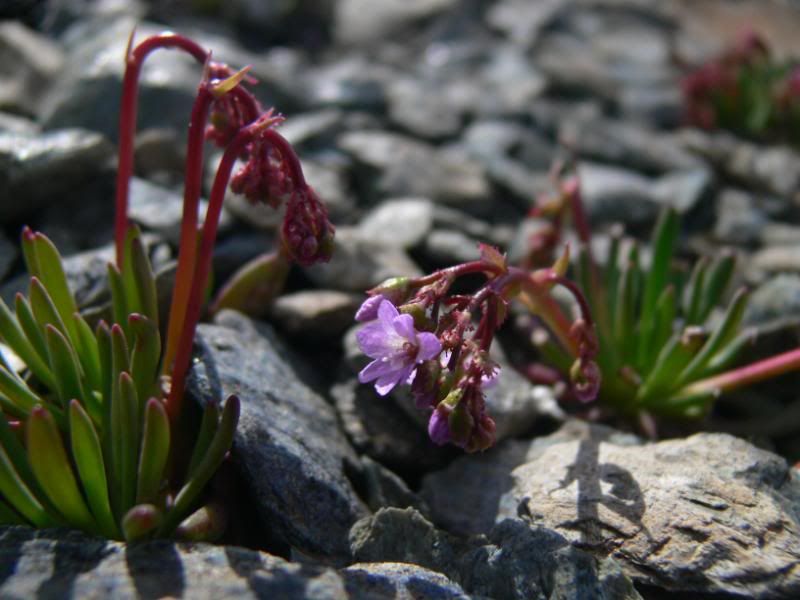
Saw Fritillaria glauca... Last year all I found were faded flowers, this year, most looked like this.
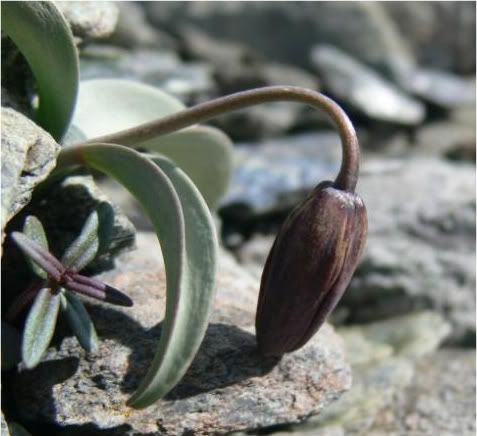
But a few had actually opened. They come in yellow too, but only found red.
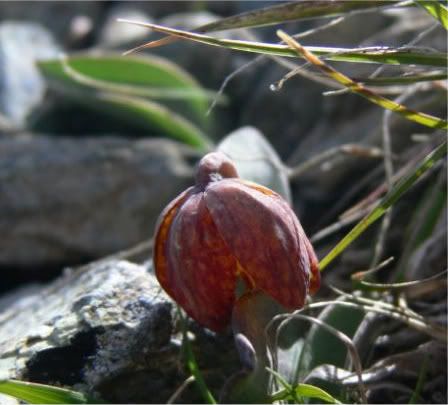
Here’s my index finger for size comparison of this tiny alpine.
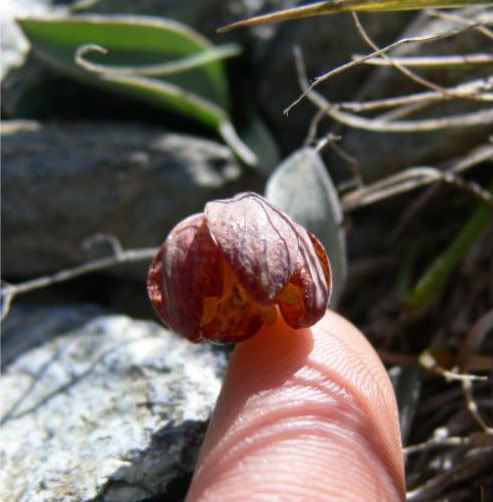
Cute little Viola hallii near the top.
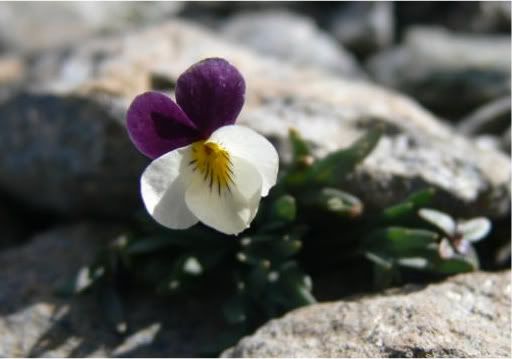
I think this is Thlaspi montanum var. siskiyouense (Synonym Noccaea montanum) near the top.
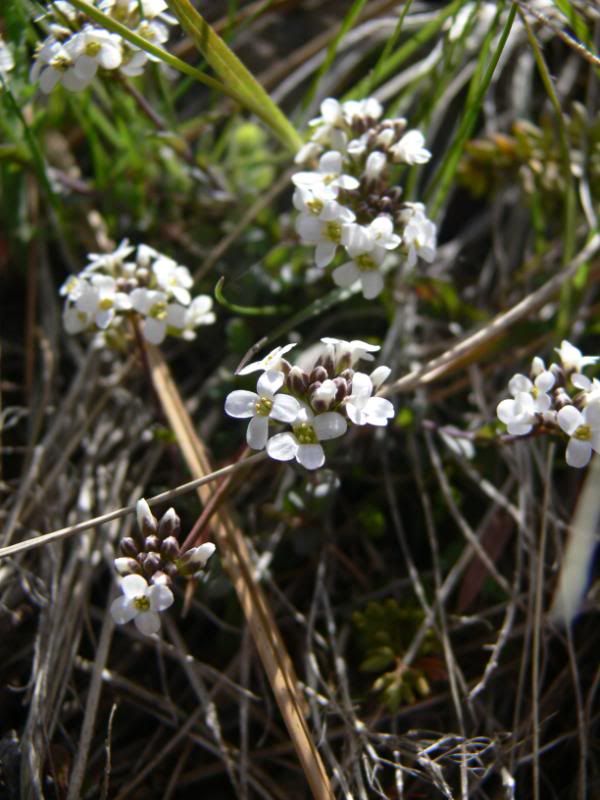
I don’t know much about Arabis, but this could be A. aculeolata.
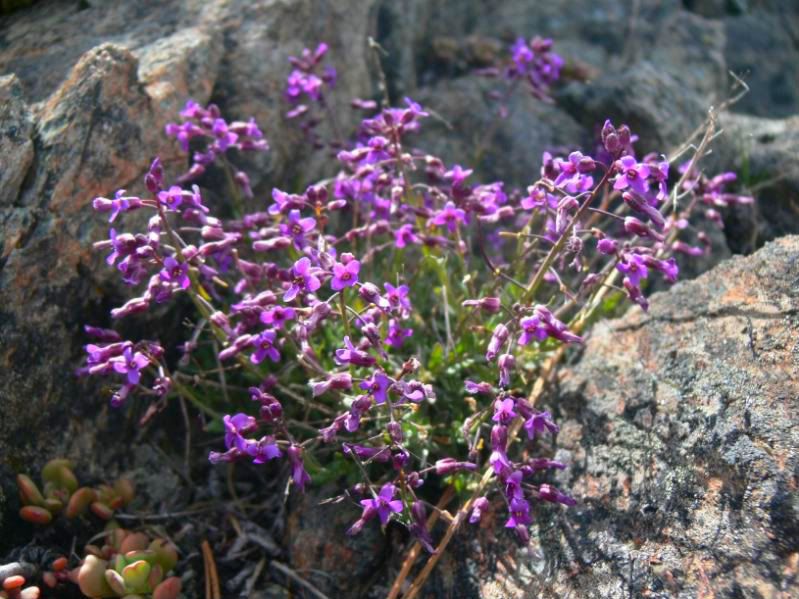
Lisa atop the mountain.
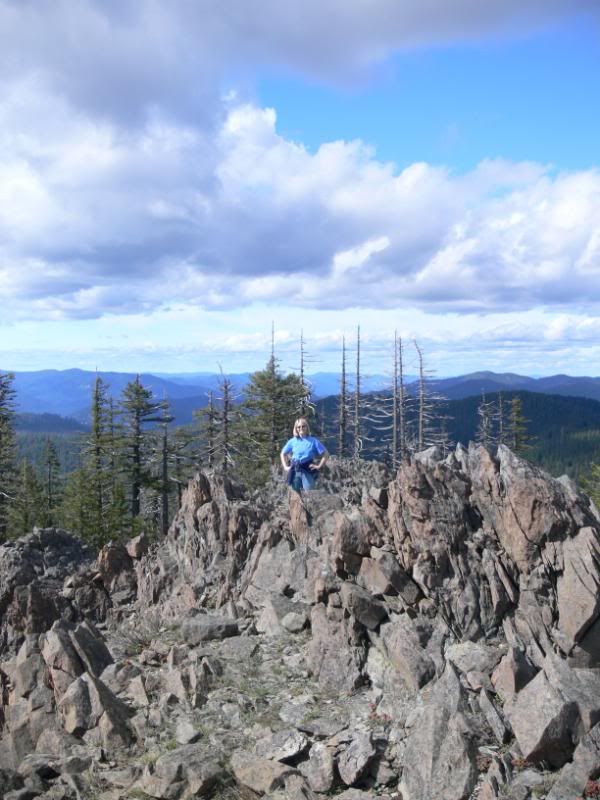
The view down from the top of the top... Yes that tiny white dot is our car.
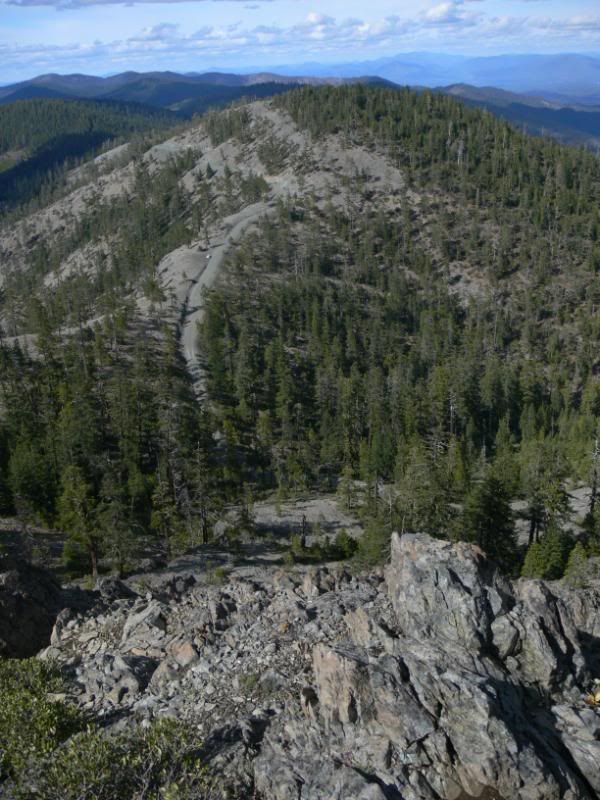
Day two: $8 Mountain.
Don’t think I’ve ever seen so many flowers on the mountain before. The Collinsia, Mimulus, Calochortus, Allium, and Composites were all fantastic. My camera can’t really capture how colourful things are...
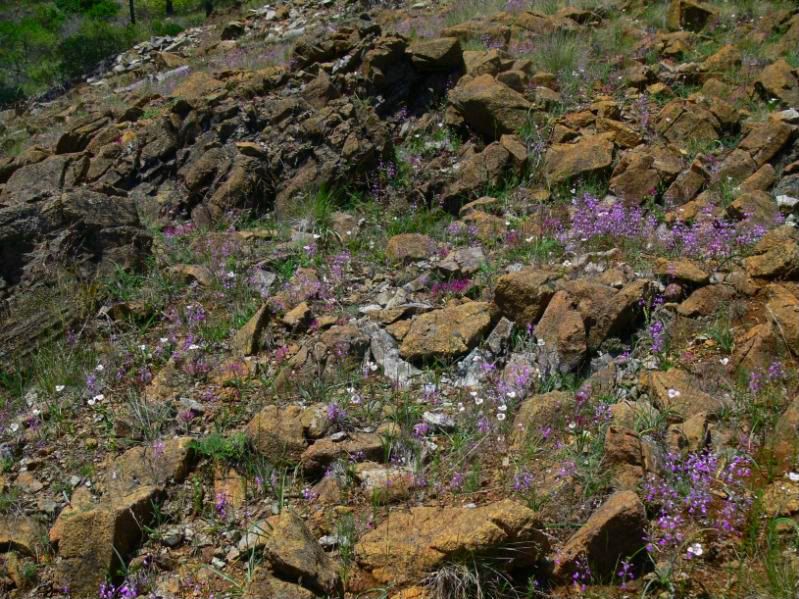
The hillside.
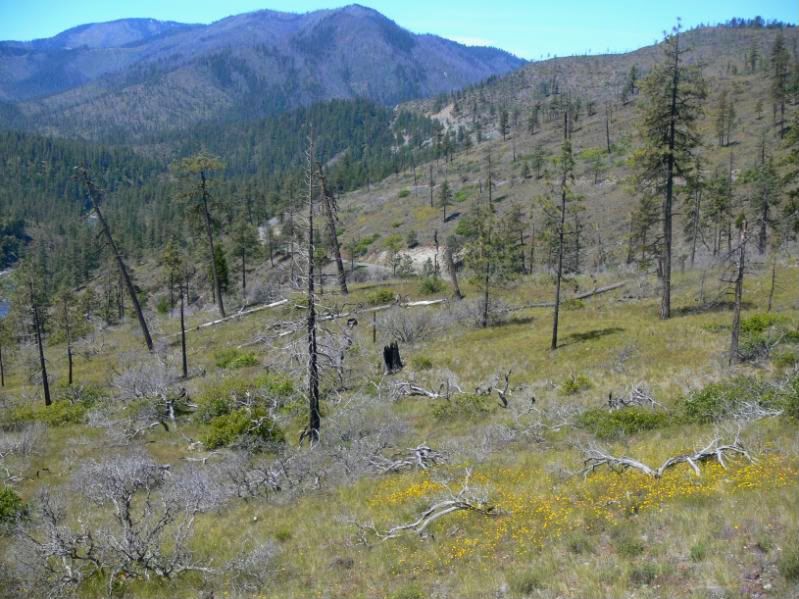
Starting alphabetically, Allium amplectens. An onion. Thousands and thousands just waiting to open.
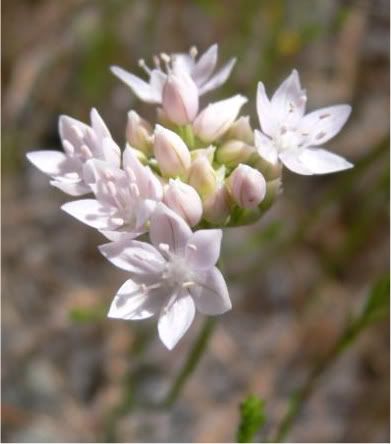
Allium falcifolium, a different onion.
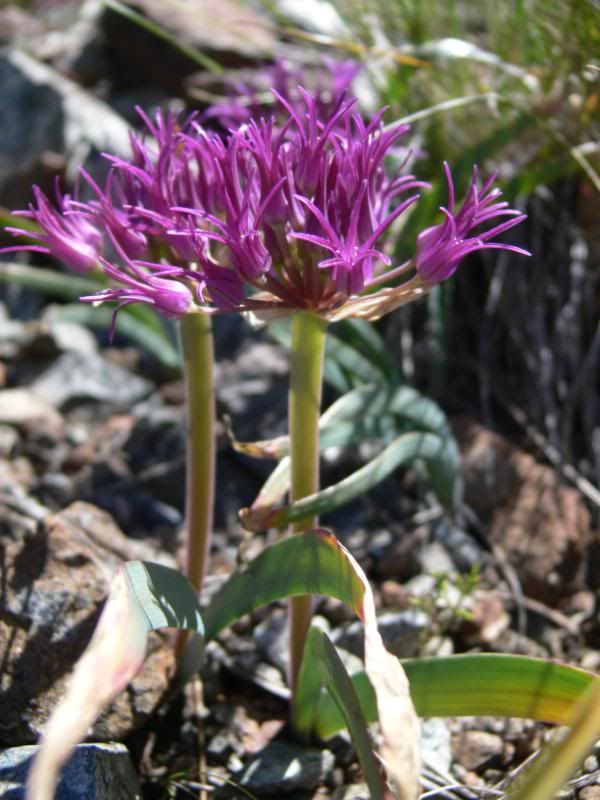
Polygala californica
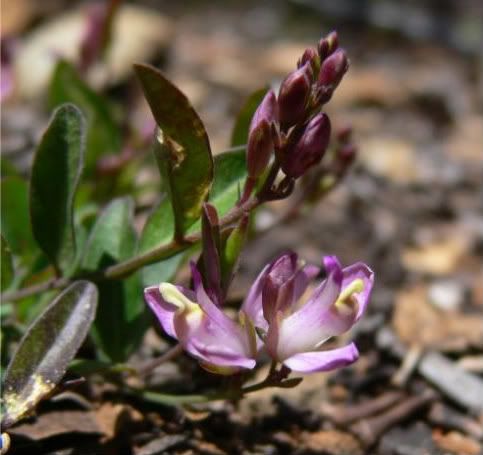
Triteleia hyacinthina
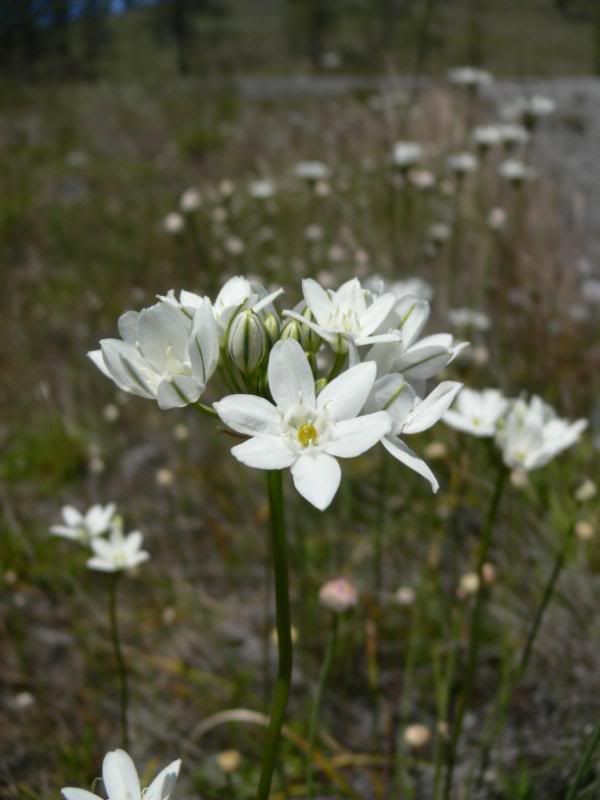
In the shadier part of the meadows grow the Irises. Below is Iris bracteata.
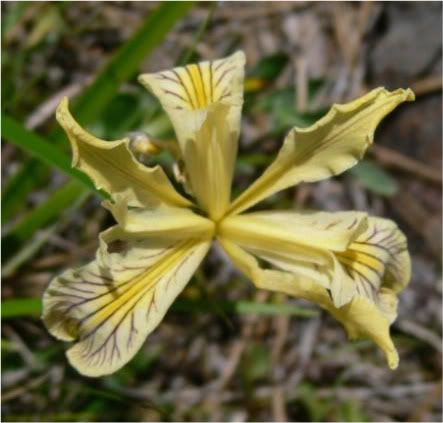
Then Iris chrysophylla.
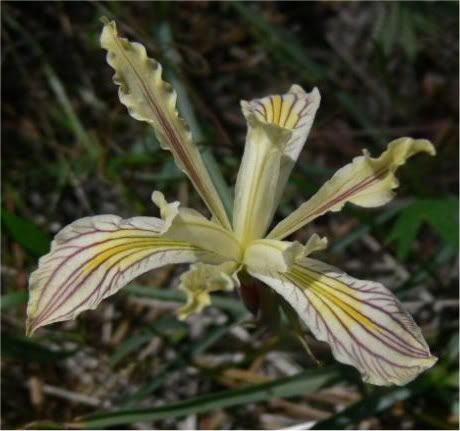
We saw a bunch of Paintbrush, including several new ones. Castilleja tenuis was a new one this year.
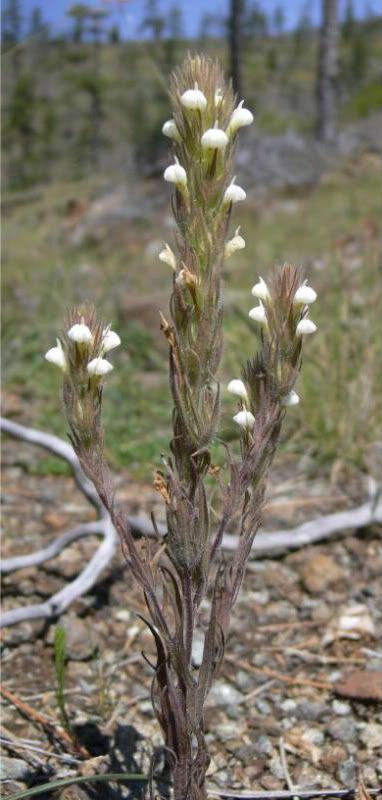
Castilleja attenuata was a new one.
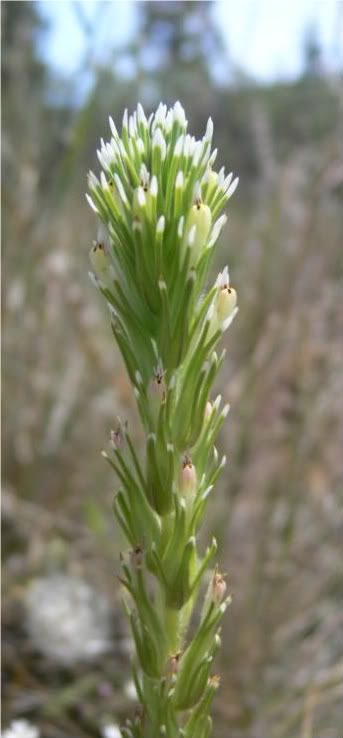
I’m not a Paintbrush master, but I think this might be Castilleja miniata alba, or something similar...
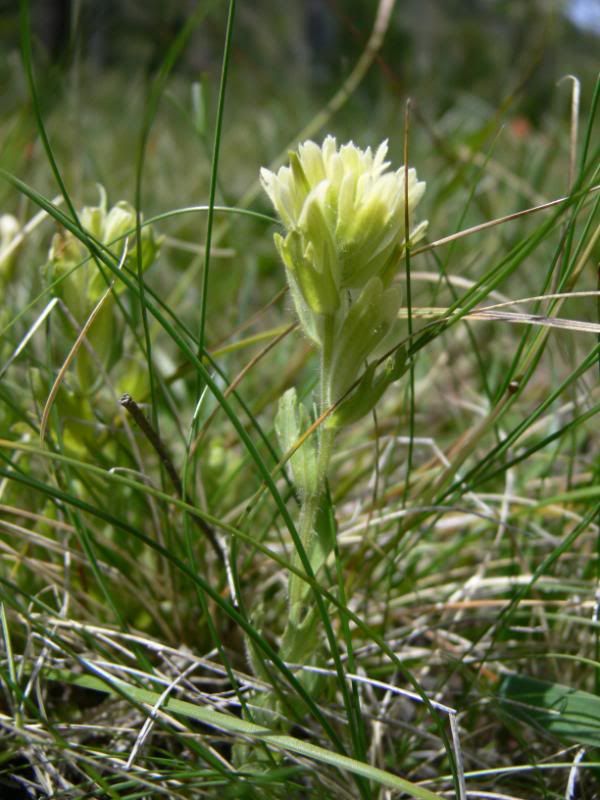
A salmon colored Castilleja miniata?
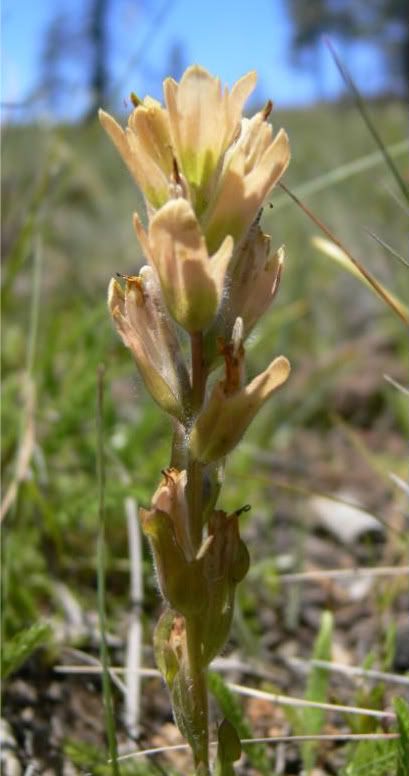
A Yellow colored Castilleja miniata? What the heck is going on?
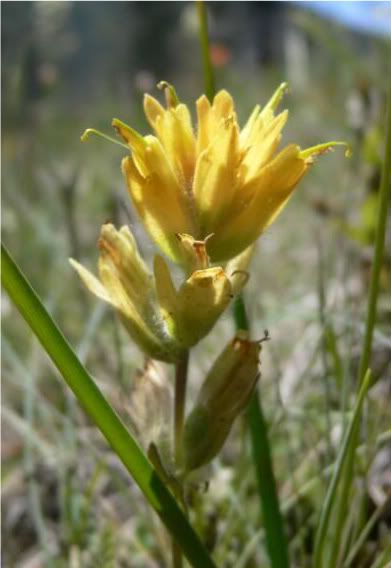
Castilleja pruinosa (or is this hispida brevilobata?) is more common.
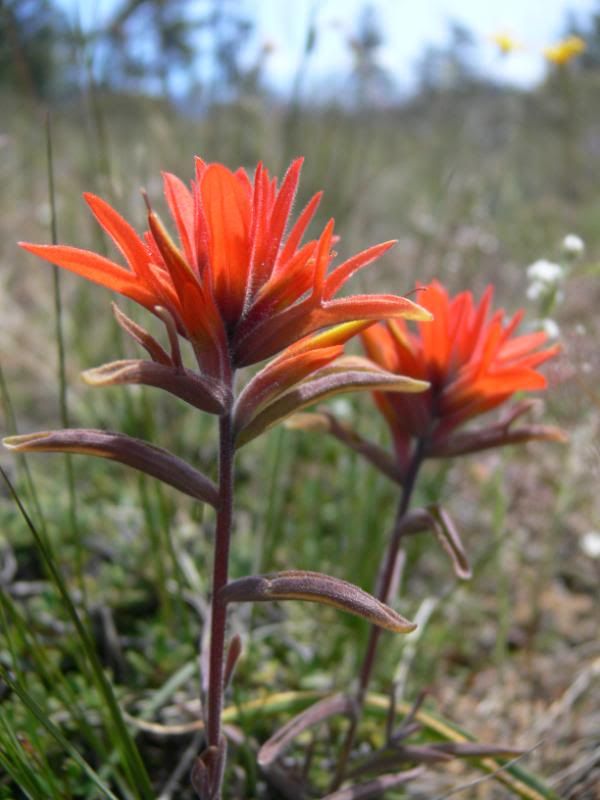
This looks like a weed, but it’s actually Calystegia occidentalis ssp occidentalis.
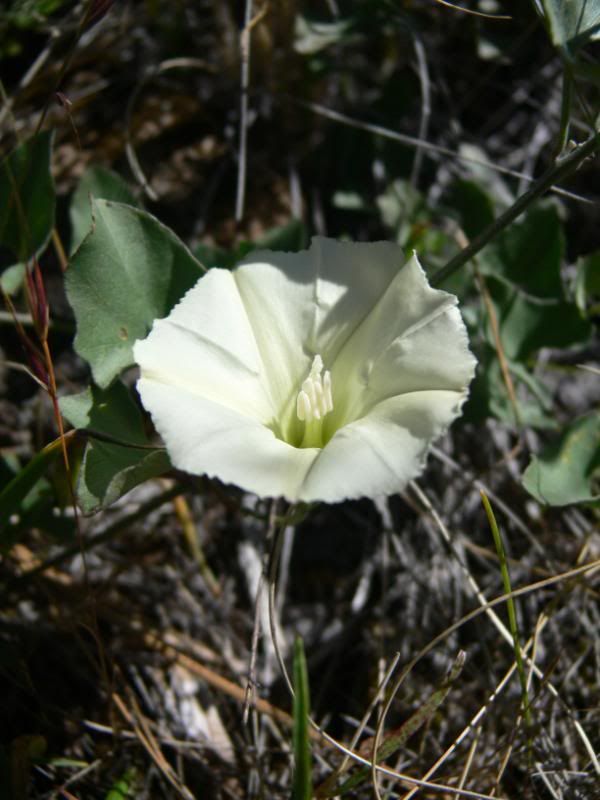
The Gilia were a favorite of this Butterfly, genus Butterflius :-P
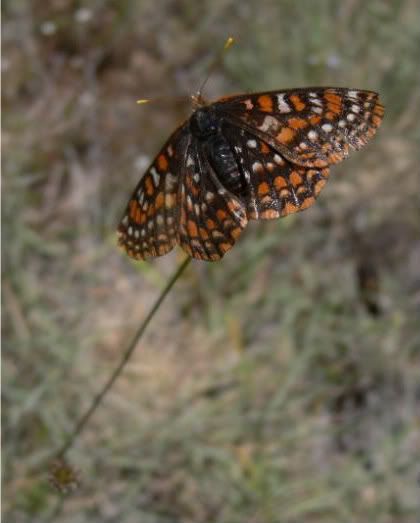
The Calochortus tolmei held their heads high this year, en masse.
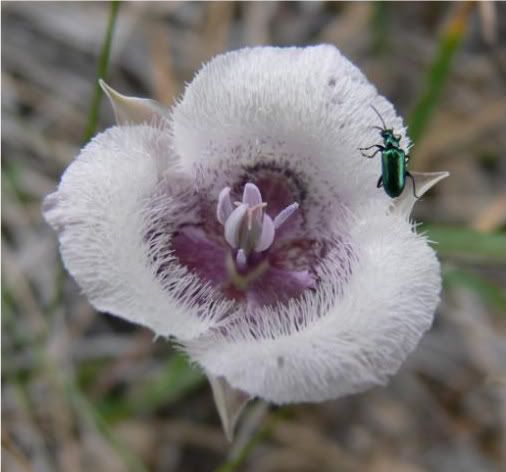
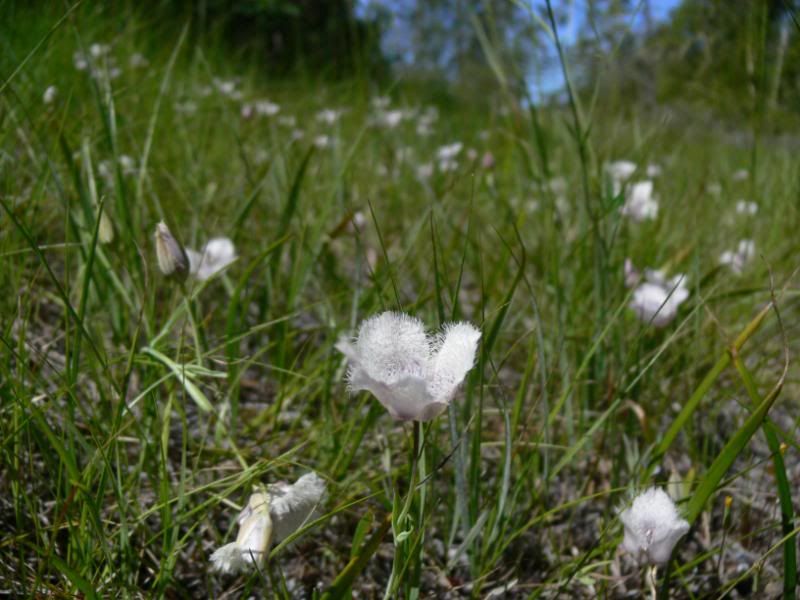
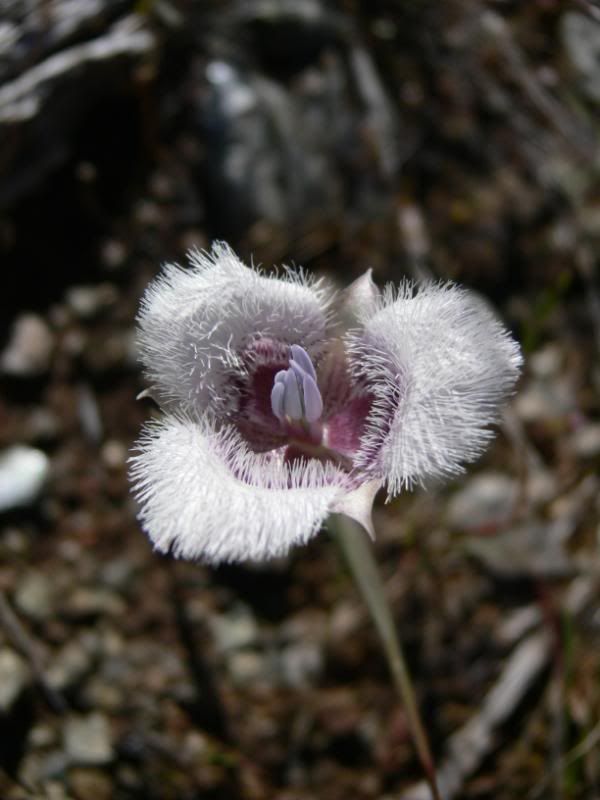
I know it’s not terribly exciting for anyone but me, but we found several Calochortus howellii locations. This species is serpentine endemic bulb that looks a lot like the big cousin of the Calochortus above... Unfortunately, it’s a July bloomer so all we got were promising buds.
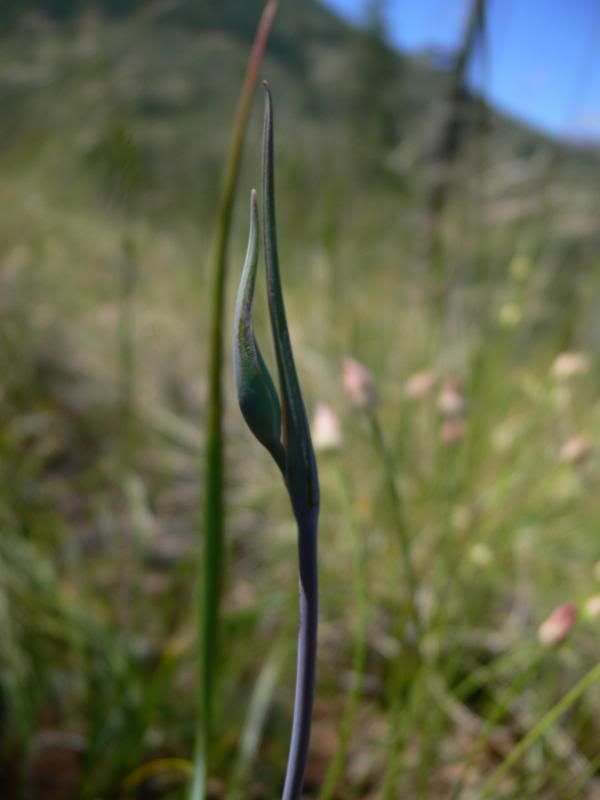
All the tallish thickish bulby looking leaves in the field are C. howellii. There are some hundred.
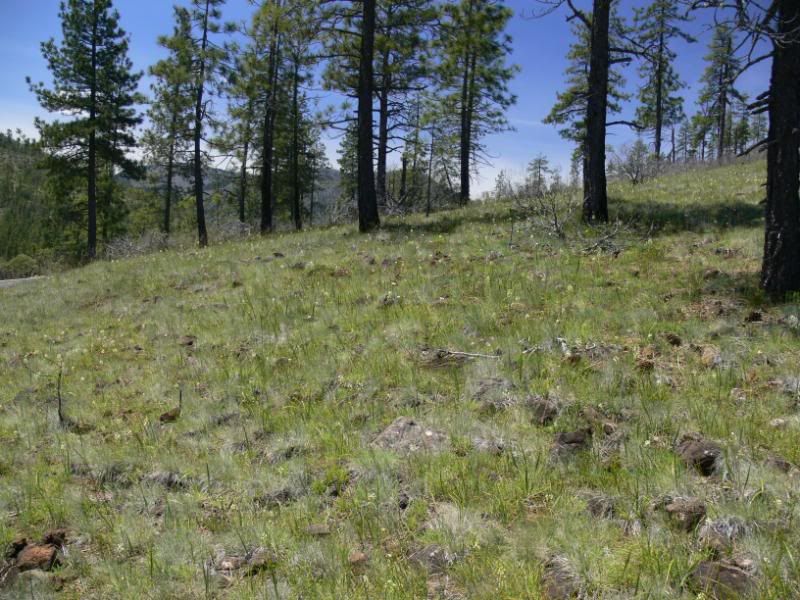
Another serpentine endemic, Hastingsia alba.
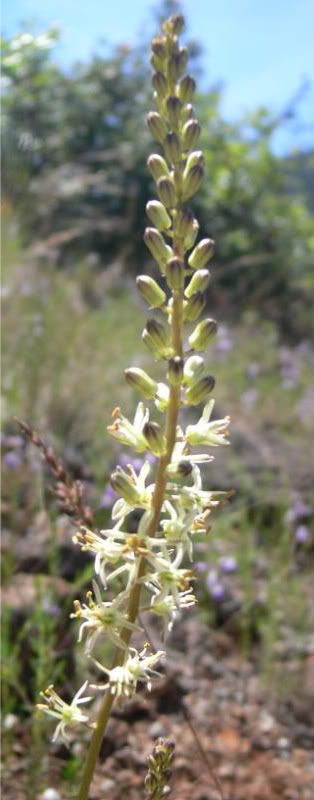
Balsamorhiza sericea was open. They have great foliage, too.
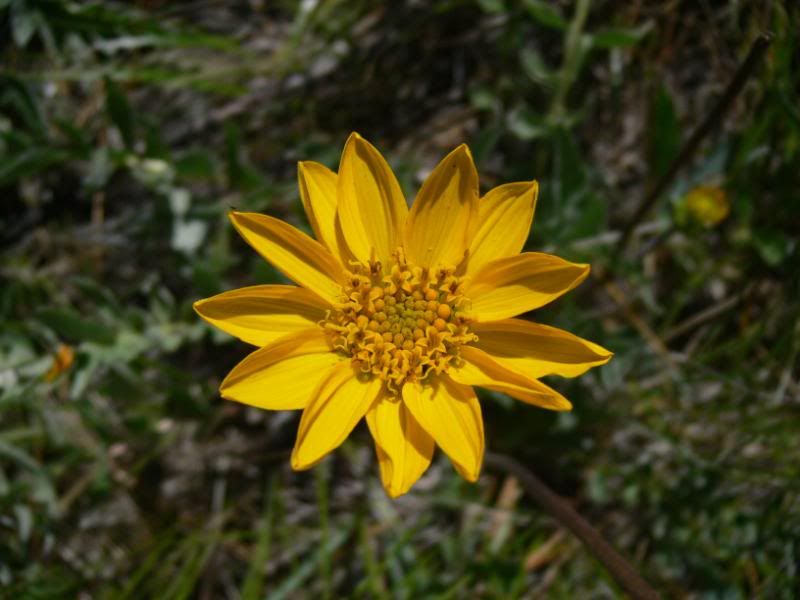
The road came down to meet the river. It was gorgeous blue green water.
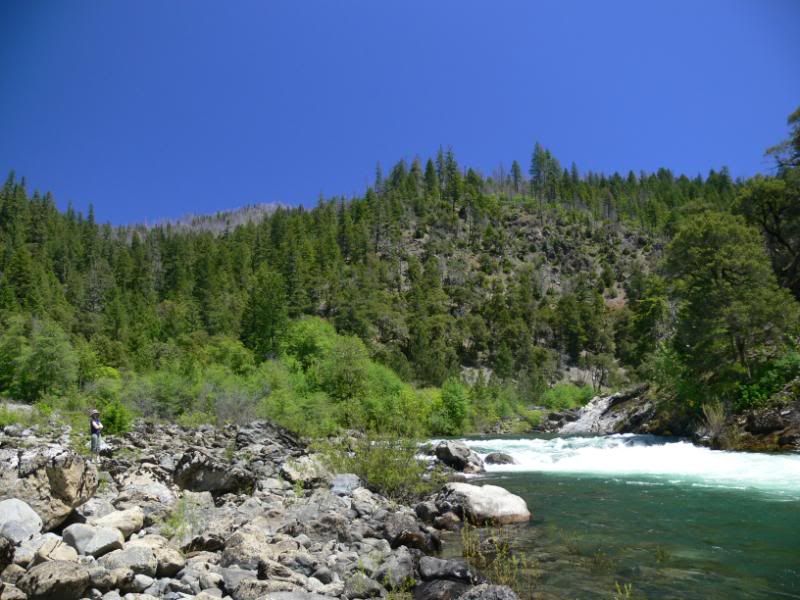
Some Eschscholzia californica in bloom by the water.
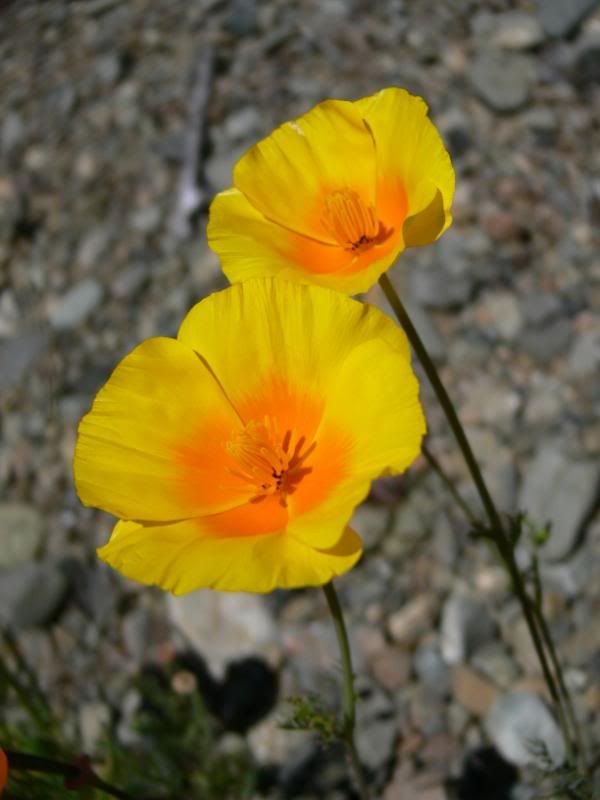
Later that day, we drove to an alpine lake. Well, drove and then jogged a mile to the lake. Unfortunately, since the whole region is behind temperature wise, very little was in bloom yet at 4500ft. The woods around the lake were burned.
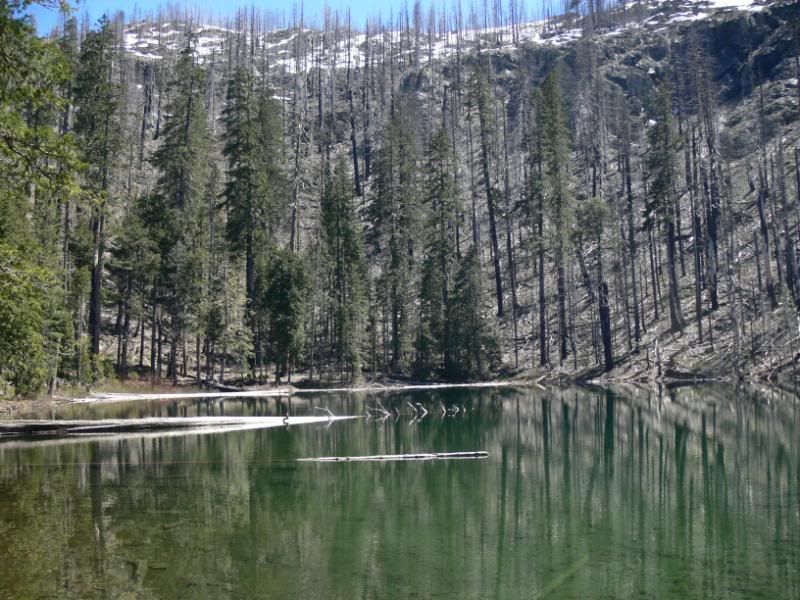
Several Erythronium citrinum were in bloom at high altitude.
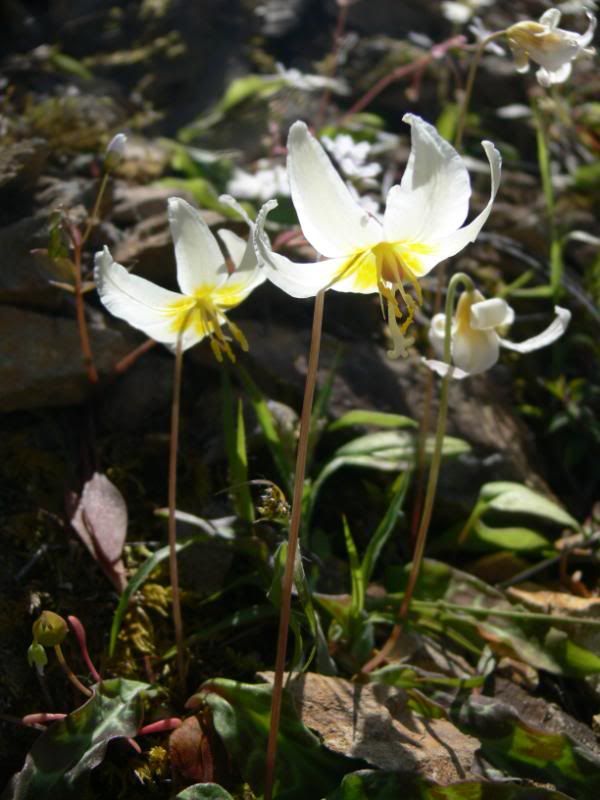
Ribes roezlii by the lake. Much better than those stupid garden center Ribes sanguineum.
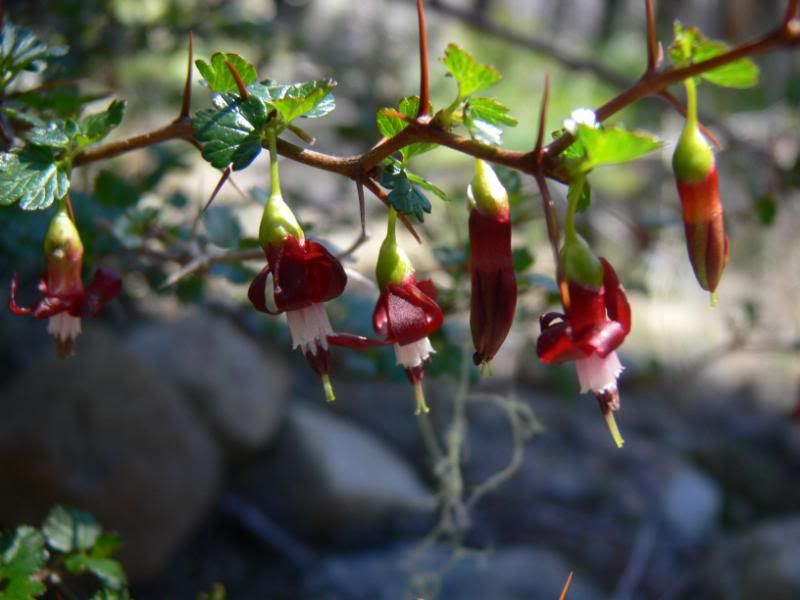
I think this is Cardamine nuttallii, but correct me if I’m wrong...
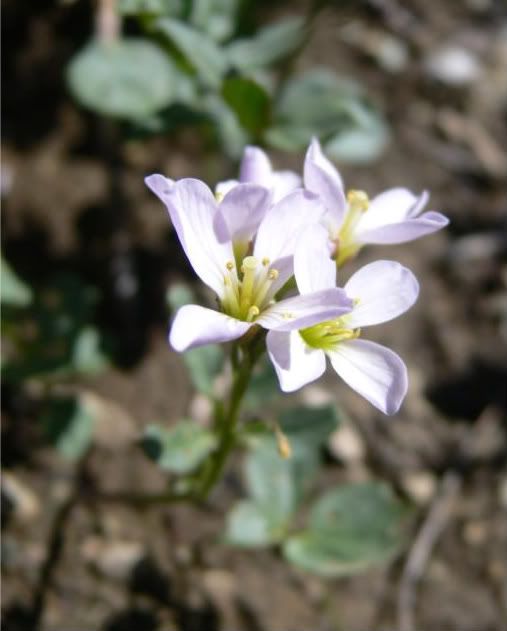
The whole reason for driving to this lake, way out there, was to see the great clumps of Lewisia cotyledon that inhabit the cliffs above the lake. However, it was too early this year :-( This plant was exactly 2ft from the top of the top of the mountain. You can see the flower buds sticking out, almost in bloom... 2 or 3 weeks from this point!
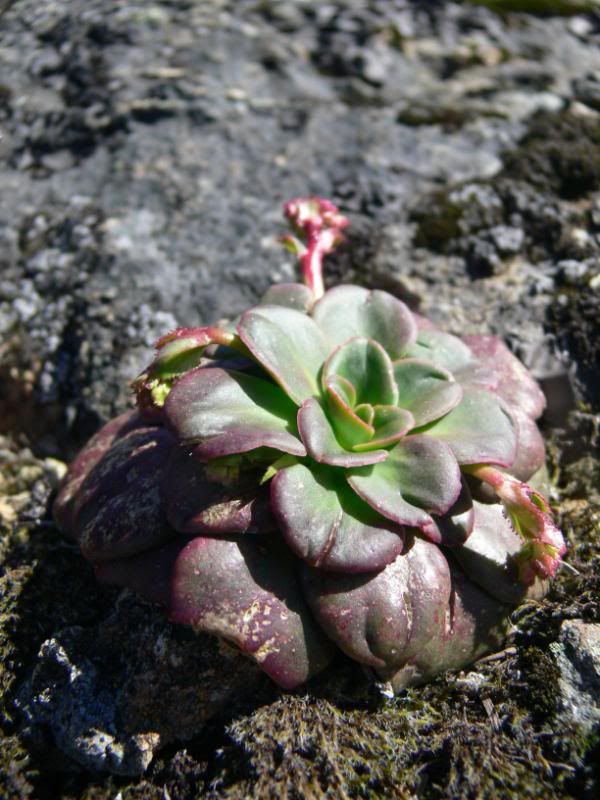
Trillium ovatum in the woods.
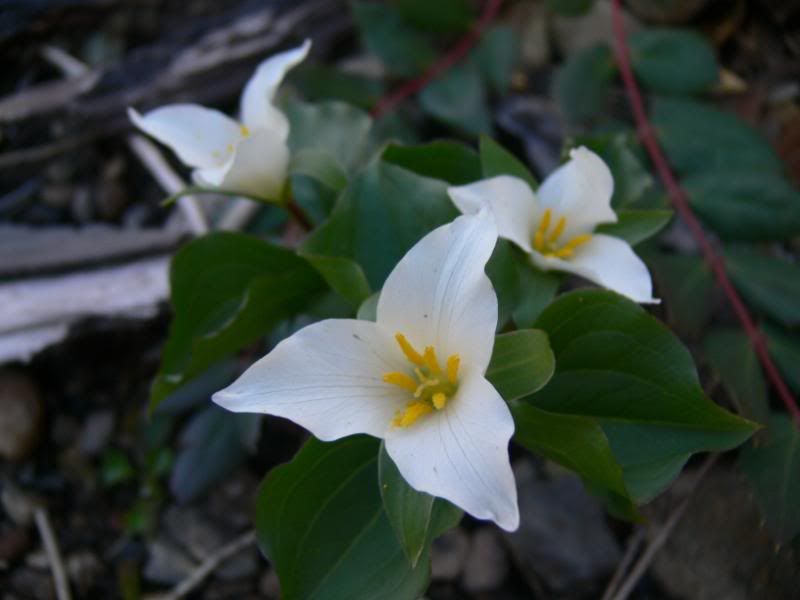
The lake is called Babyfoot Lake. A namesake tree root gnarl on the shore.
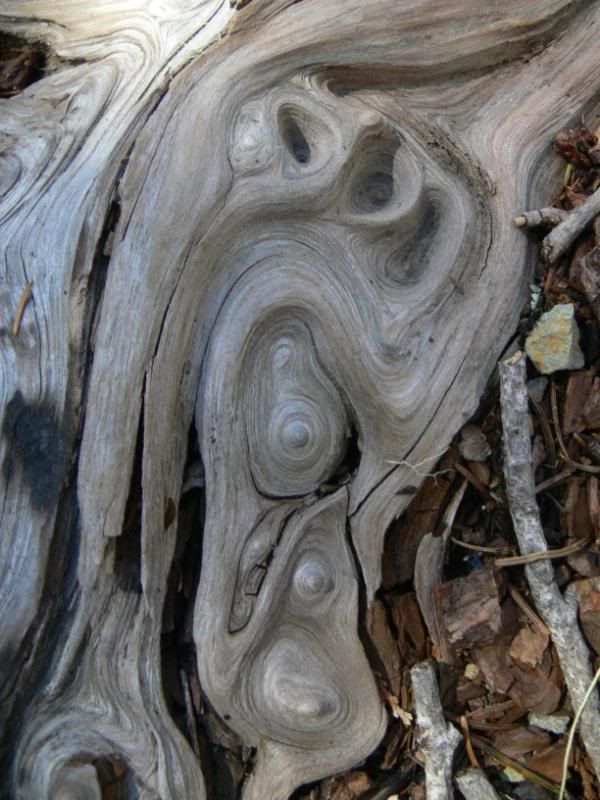
Day three, we took it easy. Wandered around the valley. Played in the river. Relaxed. Flowers.
Silene hookeri, three forms.
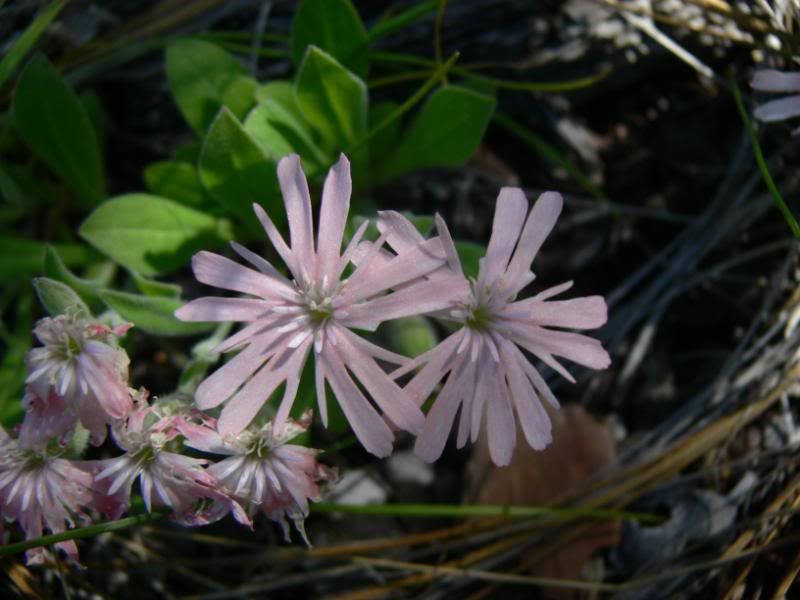
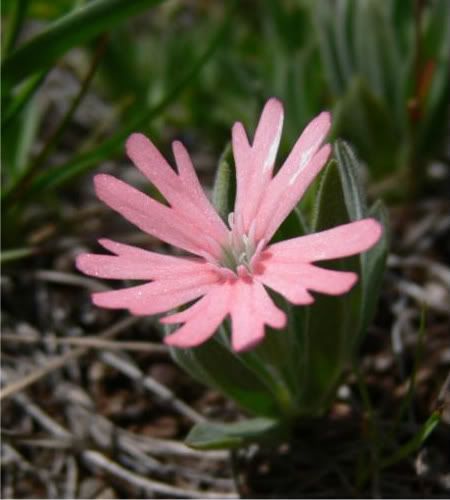
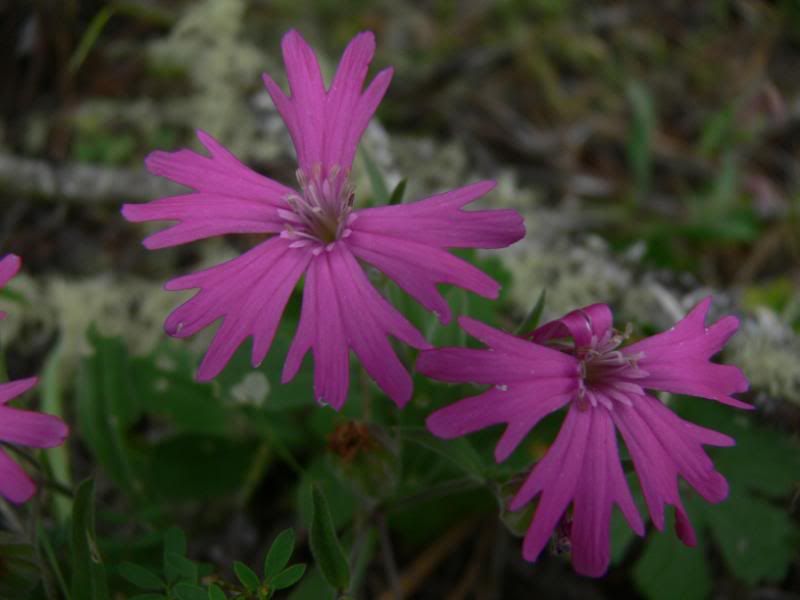
Silene campanulata is not as showy...
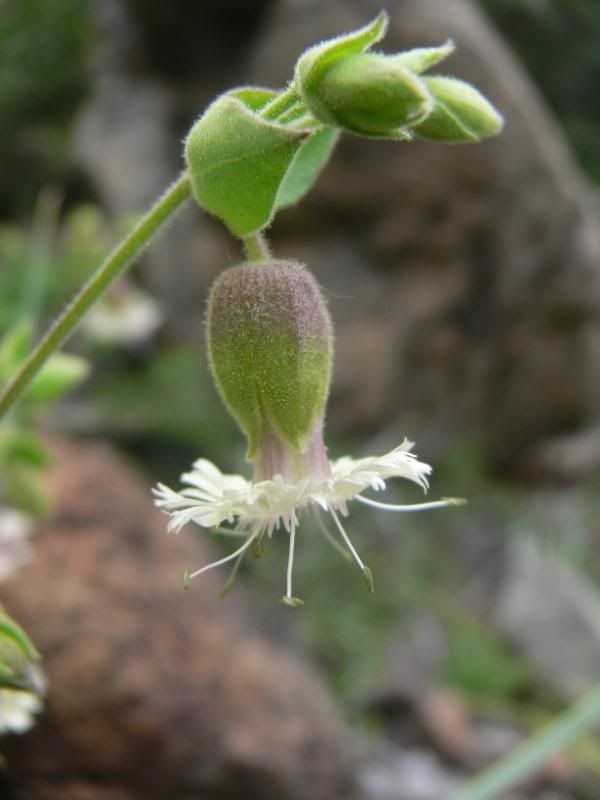
Viola lobata along the road.
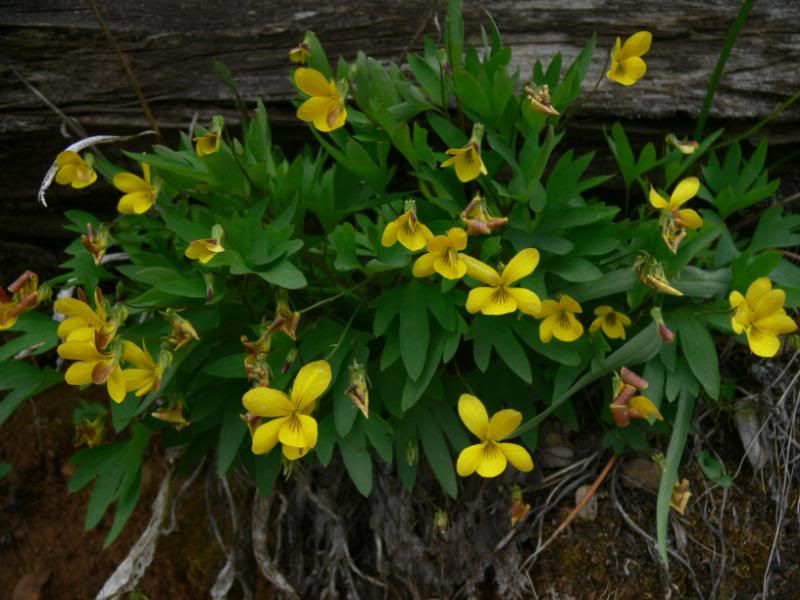
Trillium albidum was even still blooming!
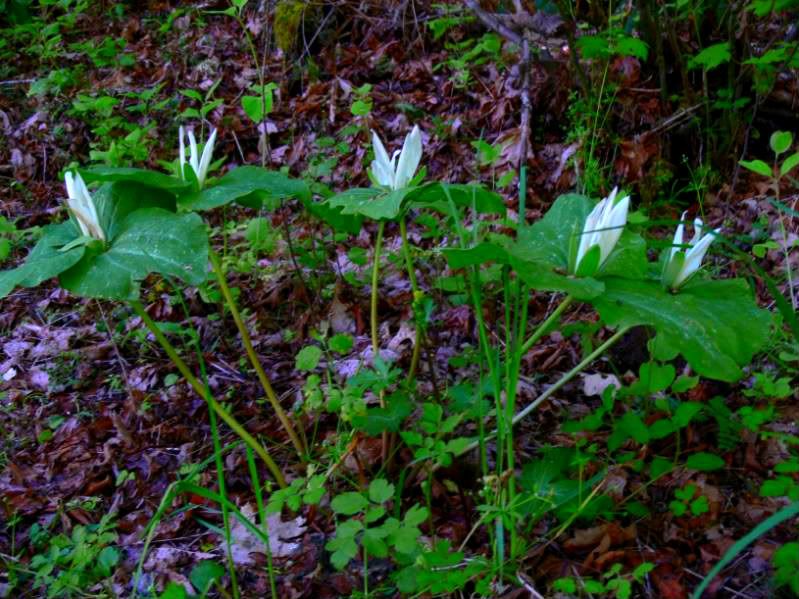
Many plants of Rhododendron occidentale were still in bud. Not this one.
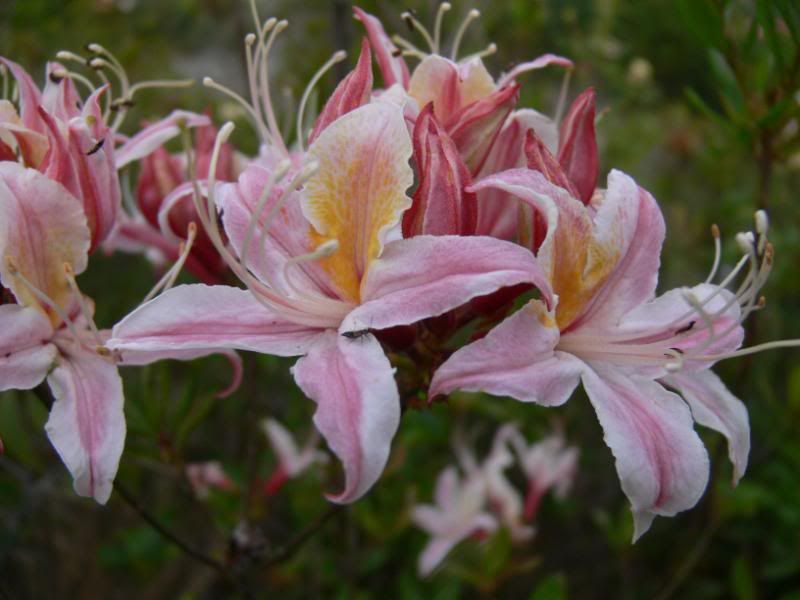
Platanthera sparsiflora in a roadside ditch.
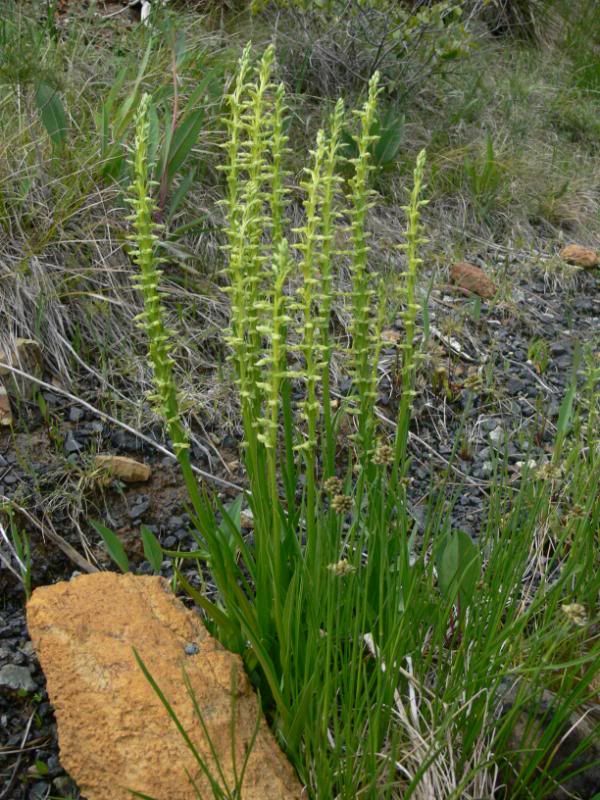
Cypripedium californicum in a roadside ditch. Why are there no orchids growing in my ditches?
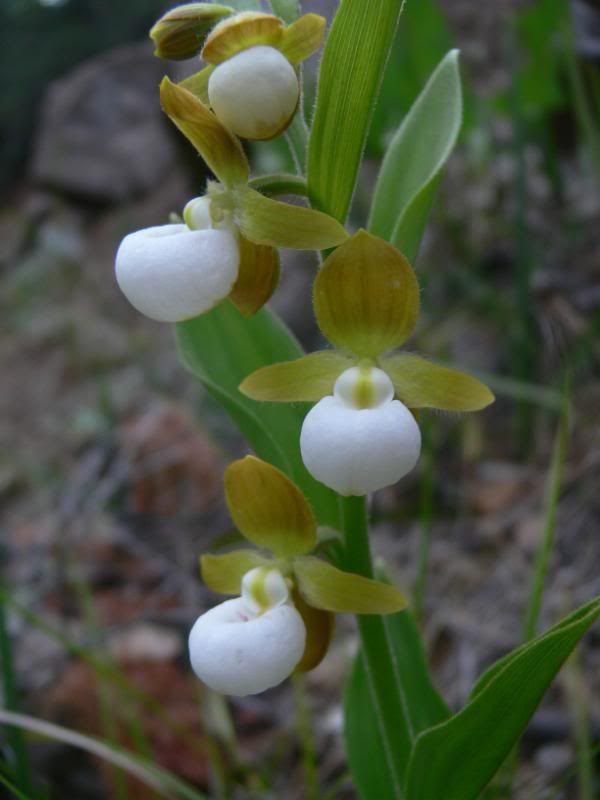
A new one for us. Petrorhagia dubia. Very nice.
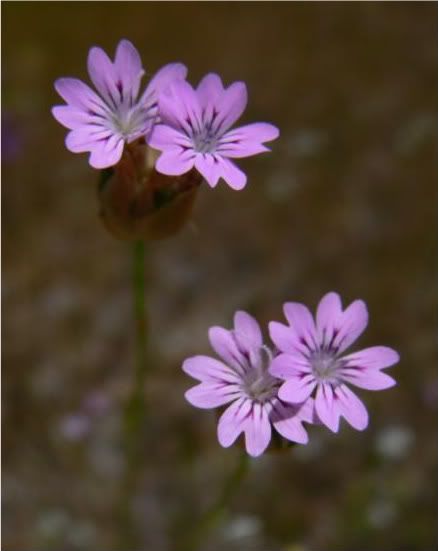
Another new one. Mimulus douglasii. Don’t know how we missed this one!
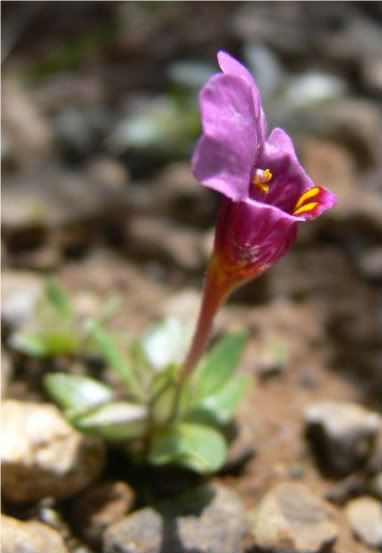
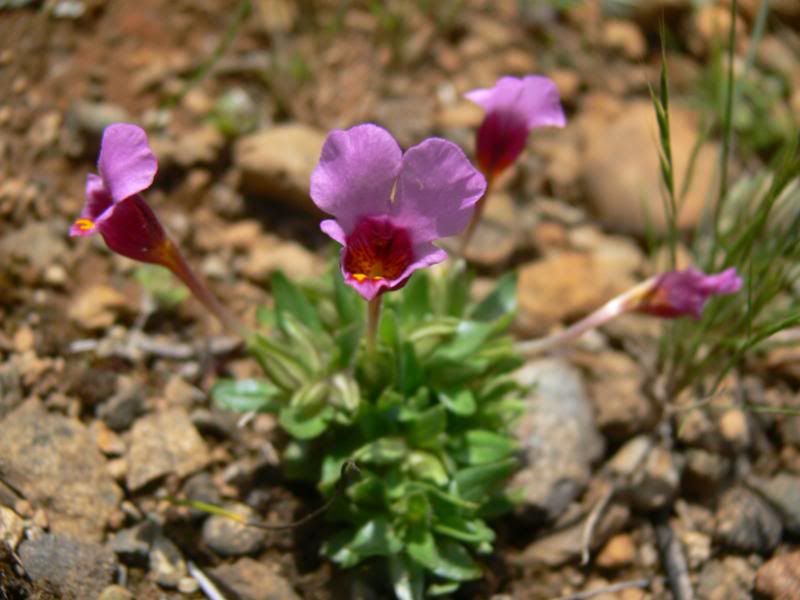
Lithophragma parviflorum.
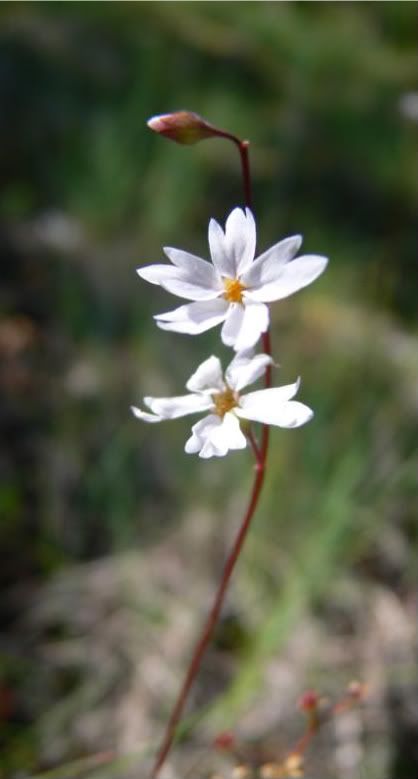
Since everything was early, we discovered, with some help, that there was Lewisia oppositifolia not but walking distance from our camp!
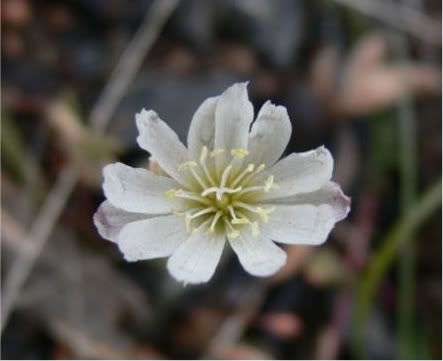
This is the only Lewisia I know that actually can tolerate wet soil... it’s growing in a drainage ditch and in a stream! Weird! I’ve been looking for them in the wrong places.
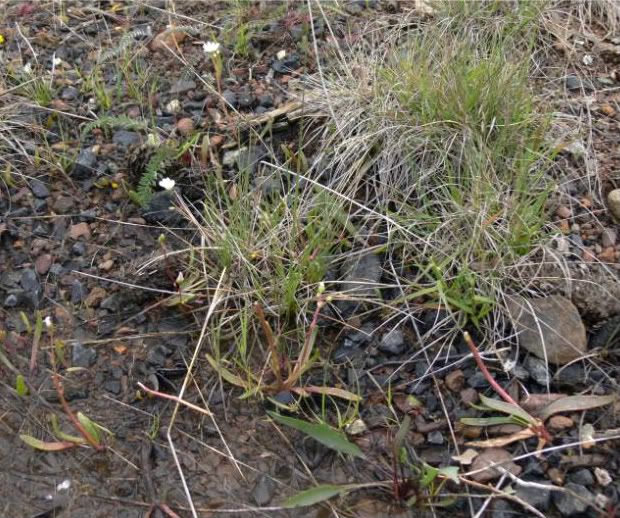
Don’t know what this one is... Maybe Stellaria longipes? Cerastium arvense? There are sooo many wildflowers that I don’t take pictures of, largely because I don’t know what they are.
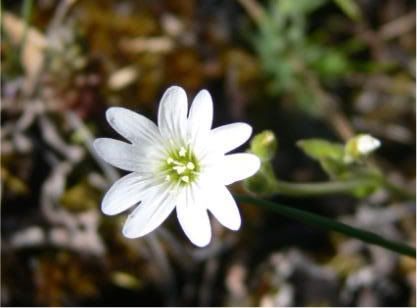
Delphinium nuttallianum, I think. Possibly decorum...
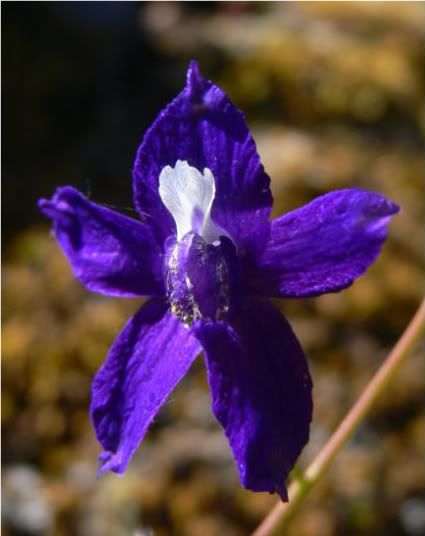
Speaking of Delphinium and finding new things... Delphinium nudicaule! I didn’t even know it was down there. Lisa spotted it along a road that we’d driven dozens of times. Perspicacity.... We has it.
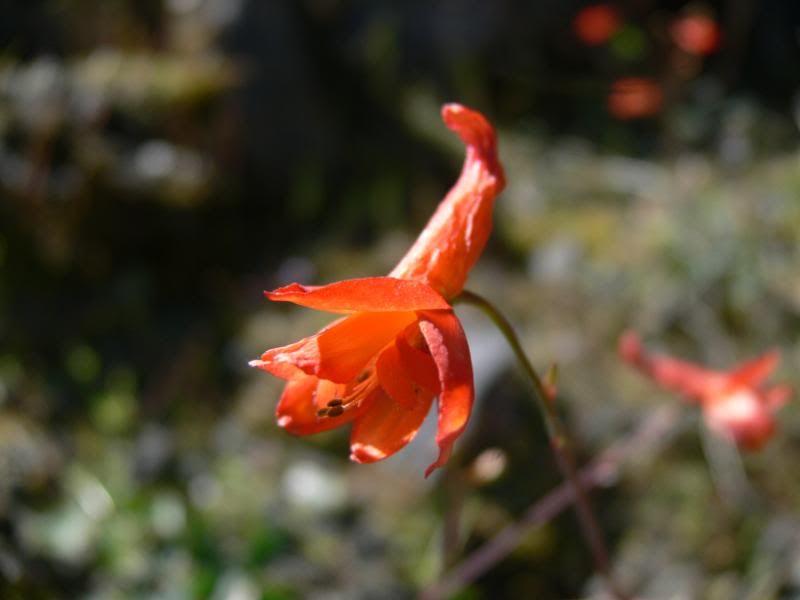
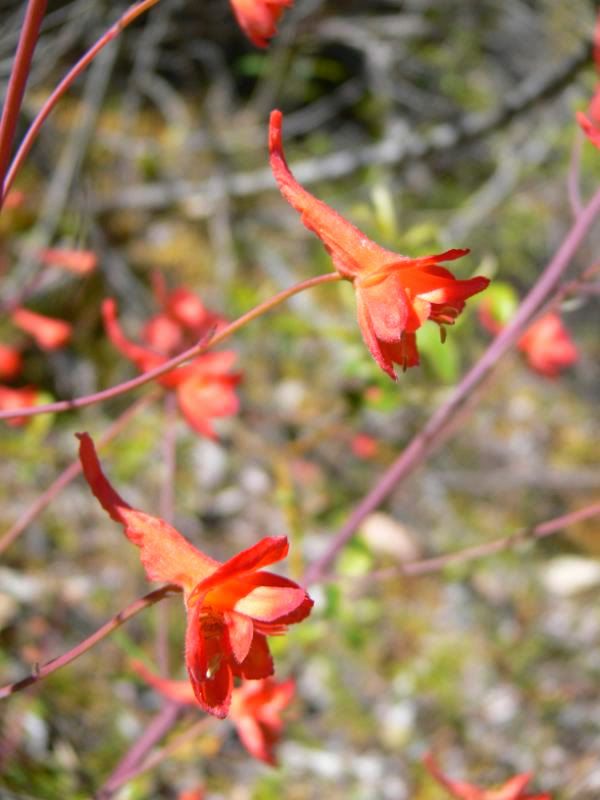
On the way to look at one of my favorite bogs (Wait: do normal people have a favorite bog?), I was very surprised by what sounded a lot like a cicada noise as I stepped over a branch. I naturally froze and looked around. I spotted this Crotalus oreganus. Thank goodness for my hearing. Gorgeous.
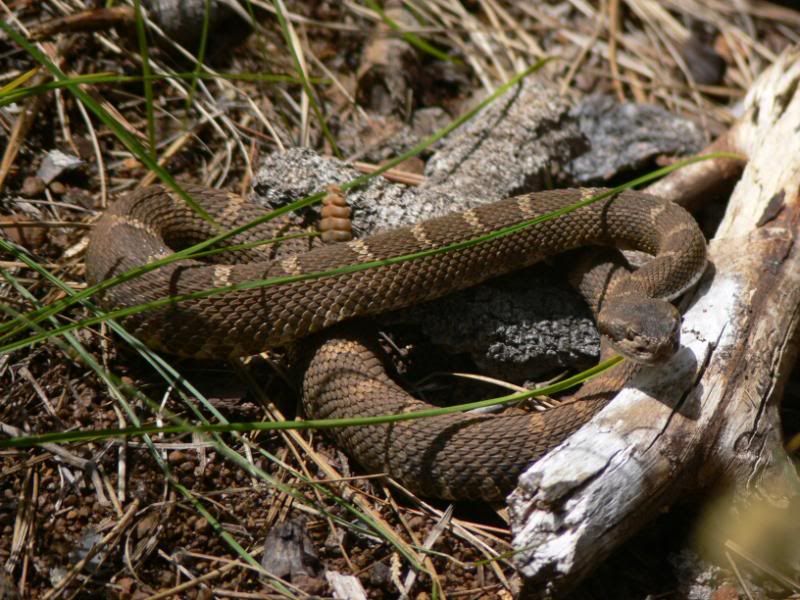
Last thing before I go on, I have to complain for 2 seconds. Every Spring I visit a small population (12 plants or so) of Cypripedium montanum, one of these is forma praetertinctum, the all green form. This form is exceedingly rare, and if you Google that form, the only picture you come up with is mine! Unfortunately, this year because of the rain, they dredged the ditch in which the plant was growing. A bulldozer knocked off the growth of the plant but I hope spared most of the root system by INCHES! I took the top of the plant, which was lying on the ground, to pollinate something else, even though the pollen wasn’t quite mature. I hope this plant survives! Probably no flowers for a few years, if ever again! Here’s the decapitated flower.
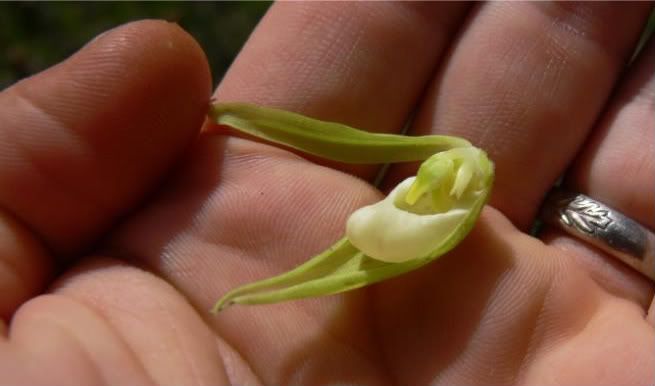
Last day: On the drive home, we stopped near Roseburg to see an Oregon endangered species: Calochortus umpquaensis. First time seeing the flowers :-D This species is VERY restricted in its range. It only grows near the Umpqua River on Serpentine hillsides. It was in danger of extinction, but since 1996 cattle grazing has been reduced and the populations have grown tremendously! Good job, team.
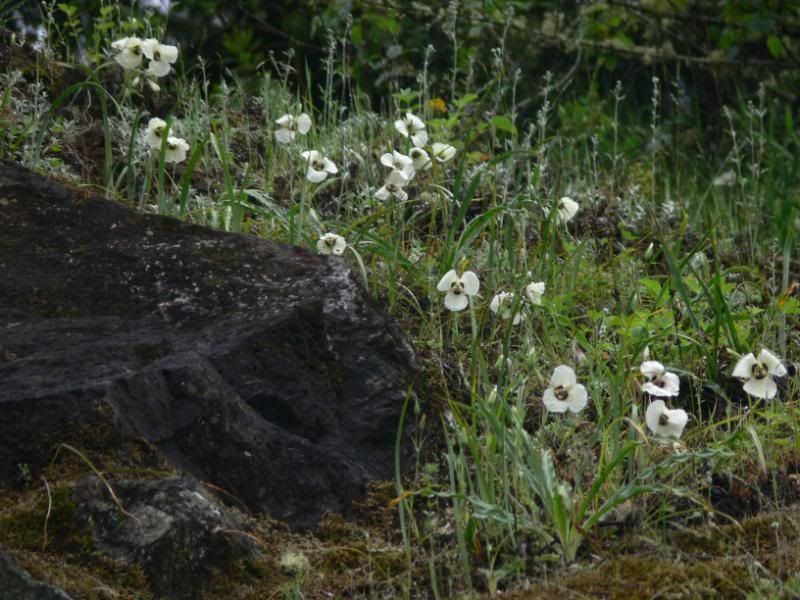
They are beautiful.
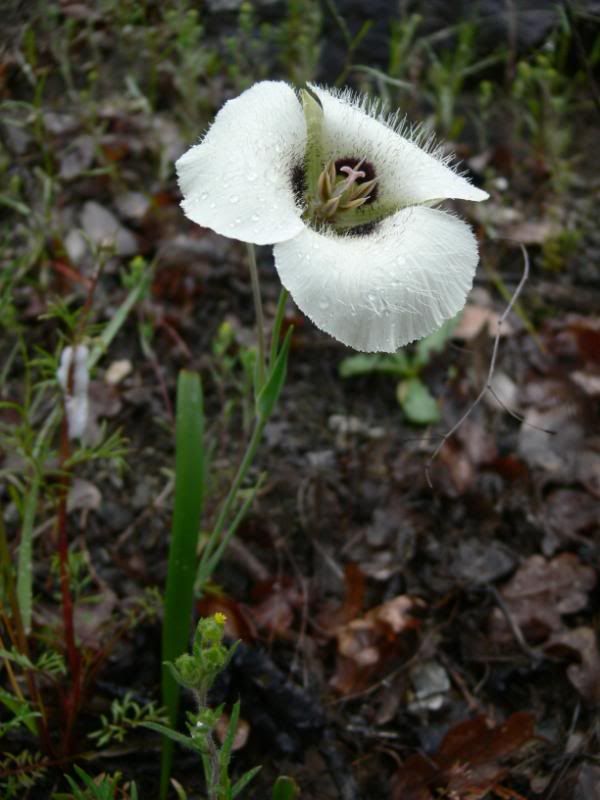
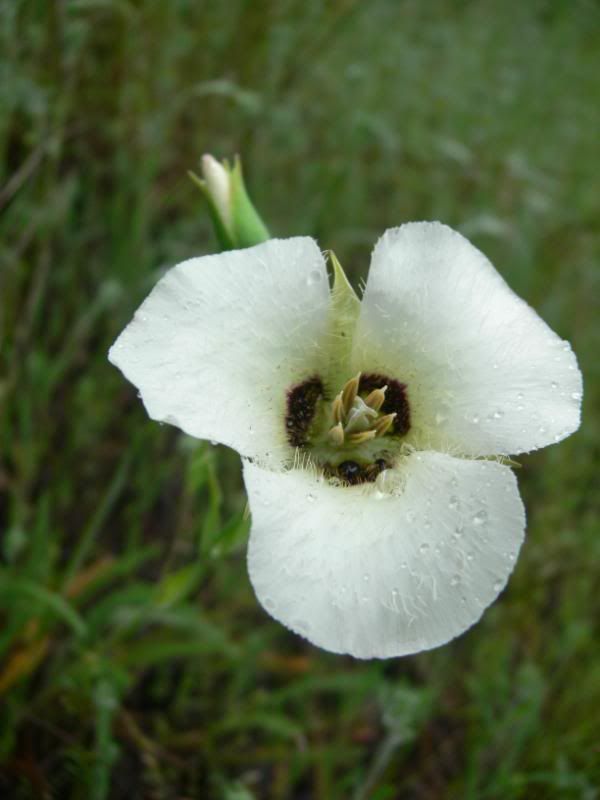
Red hairs.
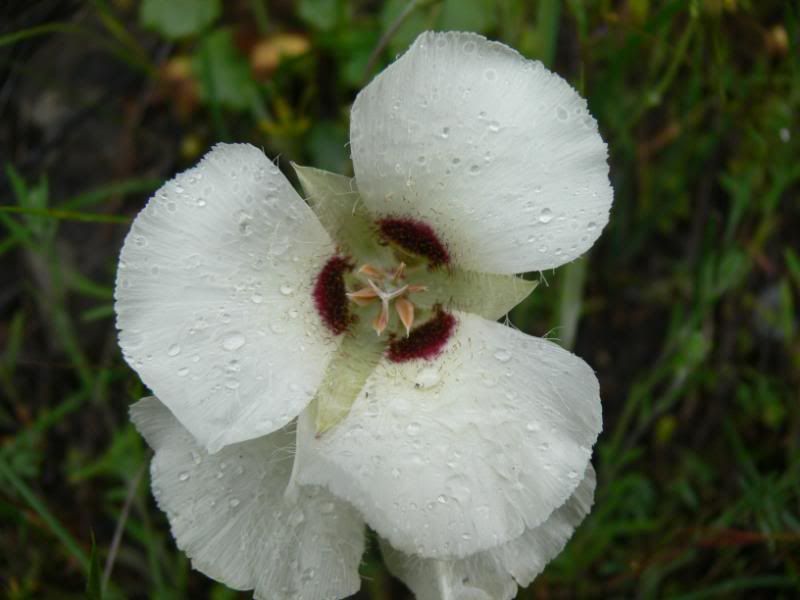
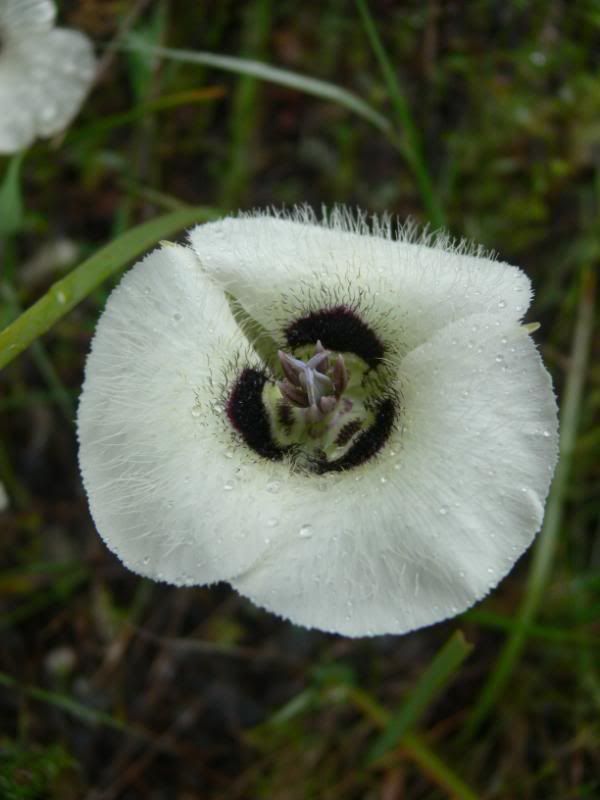
Vacation enjoyed and then terminated. End transmission.

2 comments:
I just stumbled upon your blog today in a search for more information on Southern Oregon wildflowers. My husband and I were just in Southern Oregon exploring all over and hoping to see some Cypripedium californicum, but without any luck. I notice you've had luck finding them and I'm hoping you'll share some insight so I can see some when we go down there again. Thanks for a great blog with amazing photos!
Whoa! I'm quite intrigued by that "weird" Cypripedium montanum you took a photo of! I am doing a side project on a variety of Cyp species for my dissertation...http://www.des.ucdavis.edu/faculty/Harrison/people/stella/copeland.html
Post a Comment